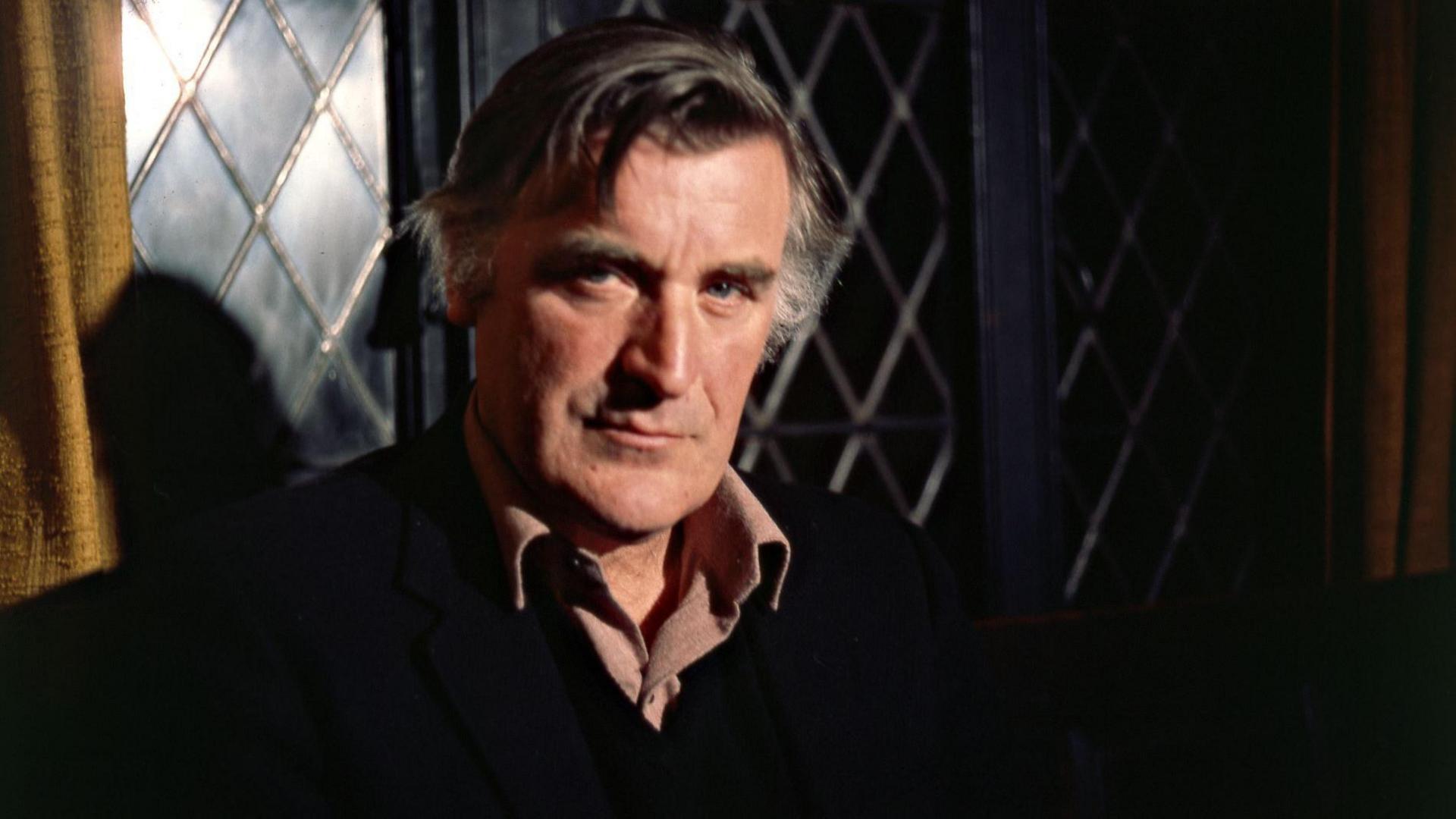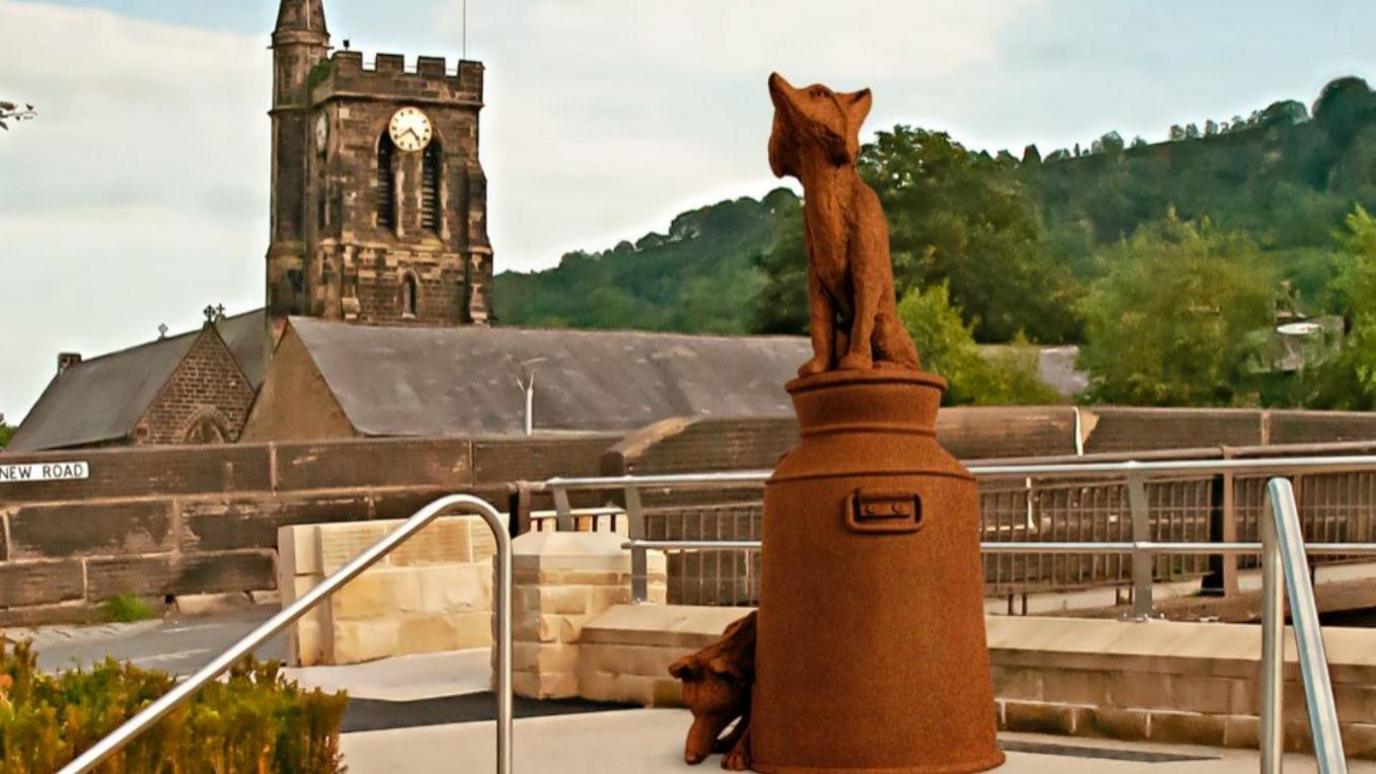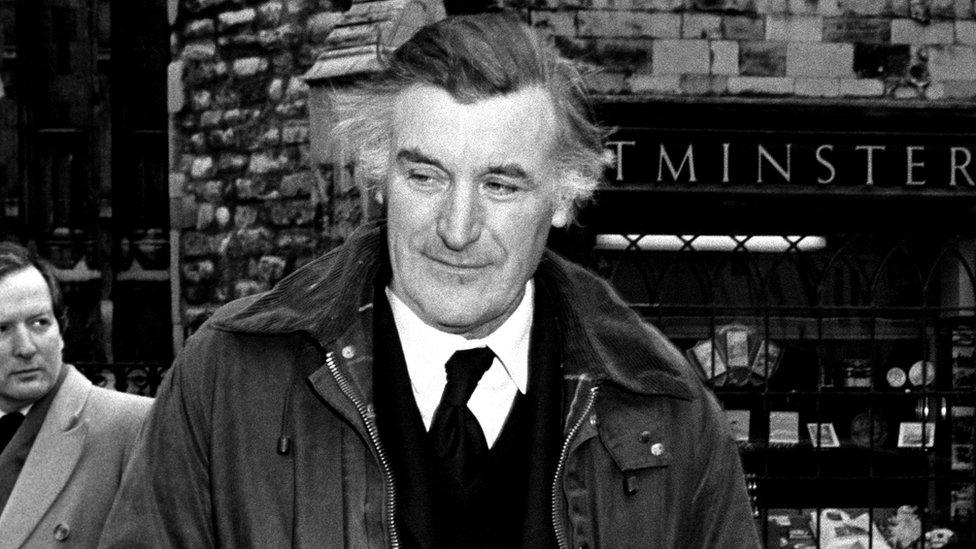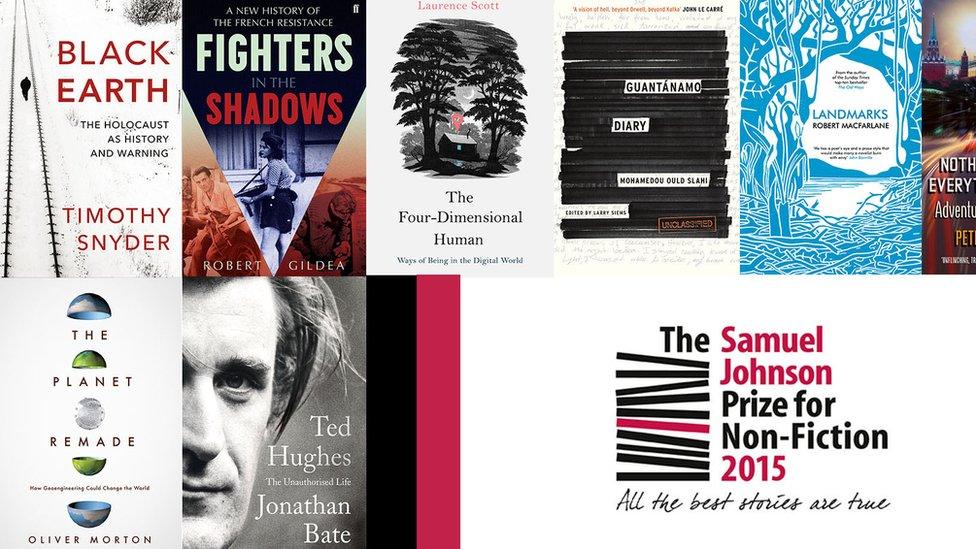New application for sculpture honouring Ted Hughes

Ted Hughes was appointed Poet Laureate in 1984 and held the office until his death in 1998
- Published
A fresh planning application for a sculpture to honour the work of former Poet Laureate Ted Hughes in his birthplace has been submitted.
Community-based voluntary organisation Royd Regeneration wants to erect a 6ft 5in (2m) high iron sculpture in Mytholmroyd.
The group had previously submitted a similar application, which was approved by planners two years ago despite objections from Mr Hughes' widow, Carol.
Calderdale Council will now consider the new application and publish a decision in due course.
Hughes, who died in 1998, was born in Aspinall Street in the village in 1930 and lived there his family moved to Mexborough when he was seven.
Some of his most notable works include the poetry collections Lupercal, Crow, and Birthday Letters and the children's book The Iron Man.

An artist impression of the proposed statue in the centre of the village
Currently only a small plaque near his former home makes reference to his connection to the village, according to the Local Democracy Reporting Service.
Royd Regeneration, which works to raise Mytholmroyd's profile, is hoping to install the cast iron sculpture of a large milk churn and two life-sized foxes in the centre of the village, opposite the Dusty Miller in Burnley Road.
A supporting statement with the application said nature played a part in the poet's work, with his boyhood in the Calder Valley providing some significant inspiration.
The previous proposals were opposed by Hughes's widow, who wrote to the council saying she had not been consulted and did not think the design was appropriate.
But the applicants said full a consultation had been done with the Elmet Trust, a Ted Hughes charity, and it felt uncomfortable for the village to feel it could not honour Hughes without the consent of someone who does not live there.
Approving the plans at the time, planners said objections were largely concerned with the subject matter and its relation to the character of Hughes, rather than siting and design.
Hughes married his second wife, Carol Orchard, after his relationship with fellow poet Sylvia Plath ended.
Get in touch
Tell us which stories we should cover in Yorkshire
Listen to highlights from West Yorkshire on BBC Sounds, catch up with the latest episode of Look North.
Related topics
- Published28 September 2015

- Published22 September 2015
